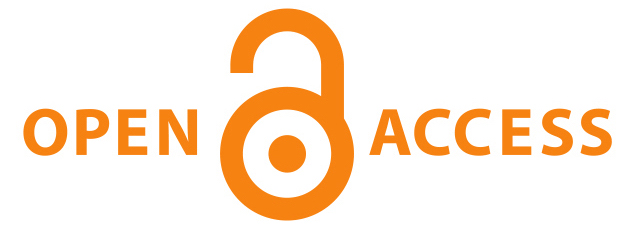A Systemetic Review of TikTok, WeChat, and LINE: The Impact of Social Media on Sino-Thai Cross-Cultural Engagement
DOI:
https://doi.org/10.56868/jadhur.v4i1.303Keywords:
TikTok, WeChat, LINE, Sino-Thai , Cross-Cultural Engagement, Social MediaAbstract
Digital platforms play a crucial role in facilitating cross-cultural interactions in Asia. However, their dual function as both connective technologies and political instruments is not well understood in specific regional contexts. This study examines the complex dynamics of cultural exchange facilitated by these platforms. It focuses on how TikTok, WeChat, and LINE uniquely influence Sino-Thai cultural engagement, analyzing their roles as mediums for cultural transmission and their implications for digital sovereignty and transnational connectivity. A systematic review guided by the PRISMA framework was conducted to analyze interdisciplinary literature published between 2015 and 2024. This review specifically examined the roles of platforms such as TikTok, WeChat, and LINE in promoting hybrid practices, acting as instruments of Chinese soft power, maintaining diasporic kinship networks, and serving as algorithmic filters. The findings reveal an asymmetric digital ecosystem. Chinese cultural dominance is evident through WeChat’s regulated infrastructure and TikTok’s engagement-driven recommendation systems. In contrast, LINE’s localized integration in Thailand exemplifies a form of vernacular resistance through creative adaptations of user-generated content. These dynamics underscore the intricate relationships between algorithmic design, user agency, and geopolitical competition. The study presents an innovative framework for understanding platform-mediated transnationalism. We recommend that policymakers develop robust digital literacy programs to empower users in navigating platform biases and advocate for greater transparency in content governance within cross-border digital spaces.
References
Aiqioa, W., Boonpiam, S., & Buranadechachai, S. (2024). Cultural Communication Strategy for Tourism Promotion of Yao Nationality by Douyin (TikTok) In Hezhou, Guangxi. Journal of Dhamma for Life,30(3),159–178.
Bezerra, A. C., & Almeida, M. A. (2020). Rage against the machine learning: a critical approach to the algorithmic mediation of information. Brazilian Journal of Information Science, 14(2), 6-23. retrieved from https://dialnet.unirioja.es/servlet/articulo?codigo=7492503
Canclini, N. G. (2006). Hybrid cultures, oblique powers. In M. G. Durham & D. M. Kellner (Eds.), Media and cultural studies: Keyworks (Rev. ed., pp. 422–430). Blackwell Publishing.
Candidatu, L., Leurs, K., & Ponzanesi, S. (2019). Digital diasporas: Beyond the buzzword: Toward a relational understanding of mobility and connectivity. The handbook of diasporas, media, and culture, 31-47. https://doi.org/10.1002/9781119236771.ch3
Day, M. J., & Skulsuthavong, M. (2021). Towards social transformation in Thailand: Orwellian power struggles and ‘digital’ human rights under the socio-technical Thai internet panopticon. In C. Yamahata, D. M. Seekins, & M. Takeda (Eds.), Social transformations in India, Myanmar, and Thailand: Volume I (Chapter 17). Palgrave Macmillan. https://doi.org/10.1007/978-981-15-9616-2_17
Dhaninee, S. (2021). Factors influencing people to use TikTok in Thailand [Doctoral dissertation, Mahidol University]. Mahidol University Institutional Repository. https://archive.cm.mahidol.ac.th/handle/123456789/4175/.
Du, X., Liechty, T., Santos, C. A., & Park, J. (2022). ‘I want to record and share my wonderful journey’: Chinese Millennials’ production and sharing of short-form travel videos on TikTok or Douyin. Current Issues in Tourism, 25(21), 3412–3424. https://doi.org/10.1080/13683500.2020.1810212
Ferreira, B. P., & da Silveira, D. B. (2023). TikTok and WeChat and Their Limitations in the European Union: An Analysis of the Right to Free Exercise of Economic Activity, Data Protection and Extensibility in Data Sharing. Direito e Desenvolvimento, 14, 37.
Filipovic, J., Devjak, S., & Ferfila, B. (2014). Diaspora engagement strategies and policies. Central European Public Administration Review, 10(2). https://doi.org/10.17573/cepar.v10i2.215
Gray, J. E. (2021). The geopolitics of platforms: The TikTok challenge. Internet policy review, 10(2). https://doi.org/10.14763/2021.2.1557.
Huttayavilaiphan, R. (2024). From local flavor to global fandom: An exploration of the cultural presentation and attitudes towards using English by Thai content creators on the TikTok platform. Frontiers in Communication, 9, Article 1453316. https://doi.org/10.3389/fcomm.2024.1453316
Jia, L., & Liang, F. (2021). The globalization of TikTok: Strategies, governance and geopolitics. Journal of Digital Media & Policy, 12(2), 273–292. https://doi.org/10.1386/jdmp_00062_1
Jin, H. (2025). Towards non-linear cultural production and systems of machinic agency: In the case of TikTok value generation. arXiv Preprint, arXiv:2503.16137. https://doi.org/10.48550/arXiv.2503.16137
Lan, D. H., Oanh, V. T. K., & Cuc, T. T. K. (2024). Motivations behind TikTok content creation among Gen Z expatriates: A qualitative study. Journal of Asian Pacific Communication, 34(2), 214–254. https://doi.org/10.1075/japc.00112.lan.
Lee, L. (2023). Fostering cross cultural communication and awareness through social networking technologies: A case study of virtual exchange. In M. Peterson & N. Jabbari (Eds.), Frontiers in technology mediated language learning (Chapter 5). Routledge/Taylor & Francis. https://doi.org/10.4324/9781003395218-5
Lee, M. K., & Baykal, S. (2017, February). Algorithmic mediation in group decisions: Fairness perceptions of algorithmically mediated vs. discussion-based social division. In Proceedings of the 2017 ACM Conference on Computer-Supported Cooperative Work and Social Computing (pp. 1035–1048). https://doi.org/10.1145/2998181.2998230
Lee, Y. L., Jung, M., Nathan, R. J., & Chung, J. E. (2020). Cross-national study on the perception of the Korean wave and cultural hybridity in Indonesia and Malaysia using discourse on social media. Sustainability, 12(15), 6072. https://doi.org/10.3390/su12156072.
Liang, G., & Suwanthada, P. (2024). A short video on the culture of the Tanka families in Guangxi, China, in the context of cultural tourism integration [Doctoral dissertation, Mahasarakham University]. http://202.28.34.124/dspace/bitstream/123456789/2587/1/64012451002.pdf.
Lu, X., Inthawadee, S., Wang, W., & Shinasharkey, T. (2024). The Technology Affordance for Enhancing Gen Zs’ Flow Experience, Satisfaction, and Continuance Usage of TikTok in Thailand. AU-GSB e-Journal, 17(2), 1-10. https://doi.org/10.14456/augsbejr.2024.23.
Ma, M., Shen, Z., & Wu, Y. (2022, November). Comparative Analysis of WeChat Channel and TikTok in China's Short Video Clips Market. In 2022 International Conference on Science Education and Art Appreciation (SEAA 2022) (pp. 996-1006). Atlantis Press. 10.2991/978-2-494069-05-3_119
Minchilli, C. (2024). Diasporic cosmopolitanism and digital (dis)connectivity among Turkish women in Rome. Media and Communication, 12(1), 88–98. https://doi.org/10.17645/mac.8767.
Monteiro-Krebs, L., Zaman, B., Geerts, D., & Caregnato, S. E. (2023). Every word you say: Algorithmic mediation and implications of data-driven scholarly communication. AI & Society, 38(2), 1003–1012. https://doi.org/10.1007/s00146-022-01468-1
Moriuchi, E. (2021). Cultures and its impact on social media usage. In Cross-cultural social media marketing: Bridging across cultural differences (pp. 55–74). Emerald Publishing Limited. https://doi.org/10.1108/978-1-83867-175-420211006
Norman, J. (2022). ‘Kinshipping’: Diasporic infrastructures of connectivity, circulation, and exchange. Geoforum, 135, 93-101. https://doi.org/10.1016/j.geoforum.2022.08.005
Panjaponphuchit, M. S., & Funk, S. (2021). How social media influencer’s reviews on social media platforms affect product consumption of Thai Gen Z (No. 305053). [Bachelor Thesis, Thammasat University, Faculty of Journalism and Mass Communication].
Pastor, J. M. A., & González, F. G. (2022). Geopolitics, governance, and AI. In I. Management Association (Ed.), Handbook of research on artificial intelligence in government practices and processes (pp. 1–12). IGI Global. https://doi.org/10.4018/978-1-7998-9609-8.ch001.
Phachanh, S., Poommai, S., Phewnil, O., & Semvimol, N. (2024). Behavior of Social Media Usage for Working and Information Perception of the Director, Primary Level of the Ministry of Education and Sports of the Lao People’s Democratic Republic. Journal of Buddhist Education and Research (JBER), 10(4), 61-69. retrieved from https://so06.tci-thaijo.org/index.php/jber/article/view/276175
Pieterse, J. N. (1994). Globalization as hybridization. International Sociology, 9(2), 161–184. https://doi.org/10.1177/026858094009002003
Plenković, M., & Mustić, D. (2020). Media communication and cultural hybridization of digital society. Media, culture and public relations, 11(2), 151-160. https://doi.org/10.32914/mcpr.11.2.3
Ryoo, W. (2009). Globalization, or the logic of cultural hybridization: The case of the Korean wave. Asian journal of communication, 19(2), 137-151. https://doi.org/10.1080/01292980902826427
Shen, H., & He, Y. (2022). The geopolitics of infrastructuralized platforms: The case of Alibaba. Information, Communication & Society, 25(16), 2363–2380. https://doi.org/10.1080/1369118X.2022.2128599.
Su, C., & Valdovinos Kaye, B. (2023). Borderline practices on Douyin/TikTok: Content transfer and algorithmic manipulation. Media, Culture & Society, 45(8), 1534-1549. https://doi.org/10.1177/01634437231168308 .
Sun, W., & Yu, H. (2022). WeChat and the Chinese diaspora. In W. Sun & H. Yu (Eds.), Digital transnationalism in the era of China’s rise (Chapter 1). Routledge. https://doi.org/10.4324/9781003154754-1
Sun, Y., & Suthers, D. (2024, January 3–6). Exploring values embedded within social media platforms: A case study of WeChat. In Hawaii International Conference on System Sciences (HICSS 57) (Paper 2). AIS Electronic Library (AISeL). https://aisel.aisnet.org/hicss-57/dsm/critical_and_ethical_studies/2
Thompson, J. B. (2020). Mediated interaction in the digital age. Theory, Culture & Society, 37(1), 3-28. https://doi.org/10.1177/02632764188085.
Tsagarousianou, R., & Retis, J. (2019). Diasporas, media, and culture: Exploring dimensions of human mobility and connectivity in the era of global interdependency. In J. Retis & R. Tsagarousianou (Eds.), The handbook of diasporas, media, and culture (pp. 1–20). Wiley-Blackwell. https://doi.org/10.1002/9781119236771.ch1.
Van Dijck, J. (2013). You have one identity’: Performing the self on Facebook and LinkedIn. Media, Culture & Society, 35(2), 199–215. https://doi.org/10.1177/0163443712468605.
Van Dijck, J., & Lin, J. (2022). Deplatformization, platform governance and global geopolitics: Interview with José van Dijck. Communication and the Public, 2, 59–66. https://doi.org/10.1177/20570473221102199
Vidyarthi, A., & Hulvey, R. (2021). Building digital walls and making speech and Internet freedom (or Chinese technology) pay for it. Indian Journal of Law and Technology, 17(1), Article 1. https://doi.org/10.55496/VHPN8259
We Are Social. (2019). Digital 2019: Thailand. Retrieved from https://wearesociall.com.
Yolanda, A., Andary, W, R., Tamsil, S, I., Zaman, K., & Wei, S. (2025). The Role of social media in the Formation of Global Cultural Identity. Journal of Social Science Utilizing Technology,3(1), 10–18. https://doi.org/10.70177/jssut.v3i1.2102.
Yuan, J. E., & Zhang, L. (2025). From platform capitalism to digital China: The path, governance, and geopolitics. Social media + Society, 11(1), Article 20563051251323030. https://doi.org/10.1177/20563051251323030.
Zoi, C. A. (2022). East Asia's soft power and counter-cultural imperialism practices on TikTok: A study of Japan and South Korea [Undergraduate thesis, Deree – The American College of Greece]. ACG Sphere. https://sphere.acg.edu/jspui/handle/123456789/2425.
Downloads
Published
How to Cite
Issue
Section
License
Copyright (c) 2025 Meng Yuan and Narong Anurak

This work is licensed under a Creative Commons Attribution 4.0 International License.
















